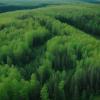
IIASA recently instituted a new system of awards to recognize outstanding contributions towards meeting the strategic priorities and values of the institute. We are proud to announce that five IIASA research activities have been recognized in the inaugural 2022 award cycle.
The IIASA Recognition Awards are given to IIASA research activities that contribute notably in four areas, namely: Originality, Addressing Emerging Challenges, Breakthrough Partnerships, and Public Engagement.
A total of 24 very high quality applications were received for the first award cycle, making the task of the evaluation committee very challenging. In the case of Breakthrough Partnerships, there were two applications that scored exceptionally high, leading the committee to award both submissions.
The award winners for this year are:
Originality Award
In this area, novel research on dealing with carbon debt by operationalizing the net-negative carbon economy by Johannes Bednar and Artem Baklanov, who are both researchers in the Exploratory Modeling of Human-Natural Systems Research Group of the IIASA Advancing Systems Analysis Program, came out on top.
Addressing Emerging Challenges Award
This award went to impactful IIASA research on integrated solutions for biodiversity using novel spatial planning and integrated assessment modeling methods by Biodiversity, Ecology, and Conservation Research Group Leader, Piero Visconti, and David Leclere, a researcher in the Integrated Biosphere Futures Research Group. This work informs the Global Biodiversity Framework under the Convention on Biodiversity and feeds into numerous global assessments and reports on biodiversity.
Breakthrough Partnerships Award
This award was jointly bestowed on two projects. The first of these is the Citizen Science for the Sustainable Development Goals Ghana Project by Dilek Fraisl and Linda See, both researchers in the Novel Data Ecosystems for Sustainability Research Group of the Advancing Systems Analysis Program. The second winner is a collaborative project on next generation agent-based models for Canada (CAN-ABM) undertaken as part of a partnership between IIASA and the Bank of Canada to enable better projections and inform monetary policy, led by Exploratory Modeling of Human-Natural Systems Research Group Leader, Sebastian Poledna.
Public Engagement Award
This award went to the work on policy exercises and capacity building through the Water-Food-Energy Nexus Game undertaken by Piotr Magnuszewski, a researcher jointly associated with the Water Security Research Group in the IIASA Biodiversity and Natural Resources Program and the Equity and Justice Research Group of the Population and Just Societies Program, and Junko Mochizuki and Barbara Willaarts, both researchers in the Water Security Research Group.
Please join us in congratulating all the winners. We would also like to extend our congratulations to all the other applicants for their excellent work in these domains and beyond.
News

26 July 2024
Navigating new horizons to protect human and planetary health

17 July 2024
Forests endure as carbon sink despite regional pressures

01 July 2024
